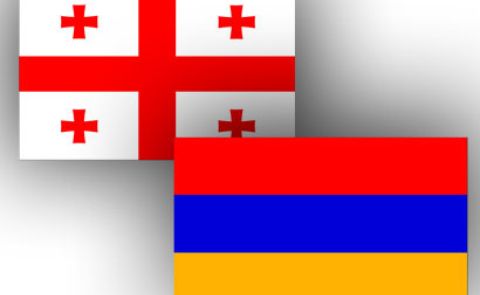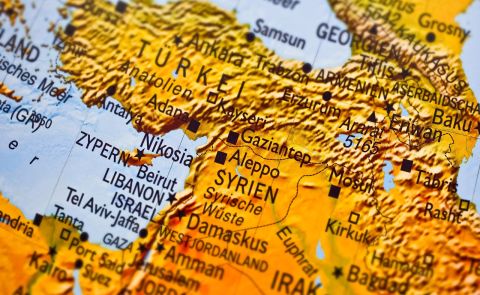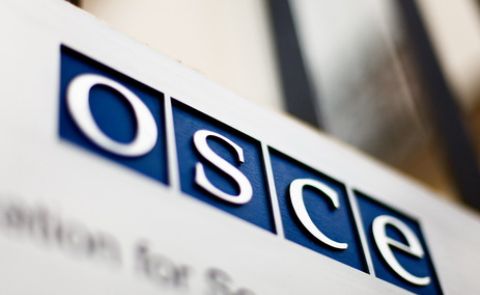
Russia and Occupied Abkhazia: A New Type of Relations

Moscow has signaled it will build a new type of relations – greater integration – with its satellite, Georgia’s occupied region of Abkhazia. The reason is not so much related to Tbilisi and its stance but rather to internal Abkhazian politics as well as Russia’s overarching ambition to expand and solidify its presence on the Black Sea.
In early March, Georgia’s separatist region of Abkhazia held a second round of elections where one of the candidates, Badra Gunba, has been declared the winner over Adgur Ardzinba with over 54% (54,954 votes). The turnout stood at nearly 70%, with 100,412 ballots cast. Russia congratulated the winner, while the official Tbilisi and the Western countries refused to recognize the results and cast the elections as illegitimate.
The separatist Abkhazia announced early elections after the region's former de facto leader, Aslan Bzhania, resigned amid protests in November 2024. The political crisis in the region was caused by troubles in bilateral relations with Russia, which was intent on pushing the Abkhaz de facto government to carry out necessary legislative changes to allow for foreign investments. Given the low probability of other countries investing in Abkhazia, the major investor was expected to be Russia.
The population of Abkhazia protested because they fear that the inflow of Russian money could eventually destroy their livelihood. Moreover, they also fear that, under the guise of Russian businesses, there might be Georgian investors with Russian passports willing to buy land and build apartments. Eventually, Moscow cut off electricity flows and financial support for the region.
Gunba, a staunchly pro-Russian politician, received a wide level of support from Moscow, which hopes that a new leader will eventually pass through the necessary legislation on foreign investments. The latter will likely be Russian investments, which Moscow has strived for decades to infuse into the region but was barred by nationalism on the ground and averse legislature in Abkhazia.
It also seems that Russia continues to value Abkhazia as a strategic object. Indeed, over the past months Russia has actually expanded its support for the separatist region. In many ways, the development came as a surprise, especially considering Russia’s prolonged war in Ukraine which depleted all its financial and political resources. Currently, the international situation is shifting, primarily in Russia's favor. With the ongoing attempts to improve relations between Washington and Moscow, the latter is set to gain a crucial advantage not only on the Ukraine portfolio but also in the South Caucasus, where Moscow has been repositioning itself in a way that would strengthen its posture.
With the potentially decisive advantage gained over Ukraine, Moscow will have more time and energy to push forward its agenda in the South Caucasus. Here Moscow has a different set of goals than in Ukraine, but they nevertheless are adjusted to its overarching objective to maintain a central role in the geopolitics of the South Caucasus. The Abkhazian shore serves as one of the few entry points from the Russian heartland to the South Caucasus. Abkhazia also could host large Russian military bases. This explains Russia’s recent moves, such as making progress on construction of the airport in Sokhumi, re-instating financial and social support for the separatist region, and holding frequent political meetings with the de facto leadership of the statelet.
In short, the idea that Russia might no longer be interested in keeping Abkhazia under its fold in the context of the war in Ukraine and improved relations with Georgia may no longer be the case. On the contrary, Moscow has indicated its desire for increased control over the separatist region, and a key component of this strategy is the advancement of investment legislation. As argued above, the international situation now favors Moscow, and with the US increasingly looking elsewhere, Washington’s engagement with the South Caucasus is expected to diminish. The change will impact Georgia’s occupied territories, potentially leading to a decrease in the West’s focus on the separatist territories of Georgia. It will also create a geopolitical vacuum that could be filled in by Russia, freed from its engagement in Ukraine.
Ultimately, Moscow appears steadfast in its belief that it does not need to make any concessions to Tbilisi regarding Abkhazia. Georgia’s relations with the West are at an all-time low, making it easy for Russia to keep Georgia closer. Hence, the need to establish a connection with Tbilisi by reaching a settlement in Abkhazia is becoming less pressing.
Emil Avdaliani is a professor of international relations at the European University in Tbilisi, Georgia, and a scholar of Silk Roads. He can be reached on Twitter/X at @emilavdaliani.
See Also


Georgia and US: From Close Ties to Caution

Armenia and Georgia Strengthening Trade and Infrastructure Under Global Shifts and Sanctions

Armenia's Public Debt Approaching 13 Billion Dollars: How Manageable Is It?

Azerbaijan's Role in Post-Assad Syria: Opportunities and Challenges

